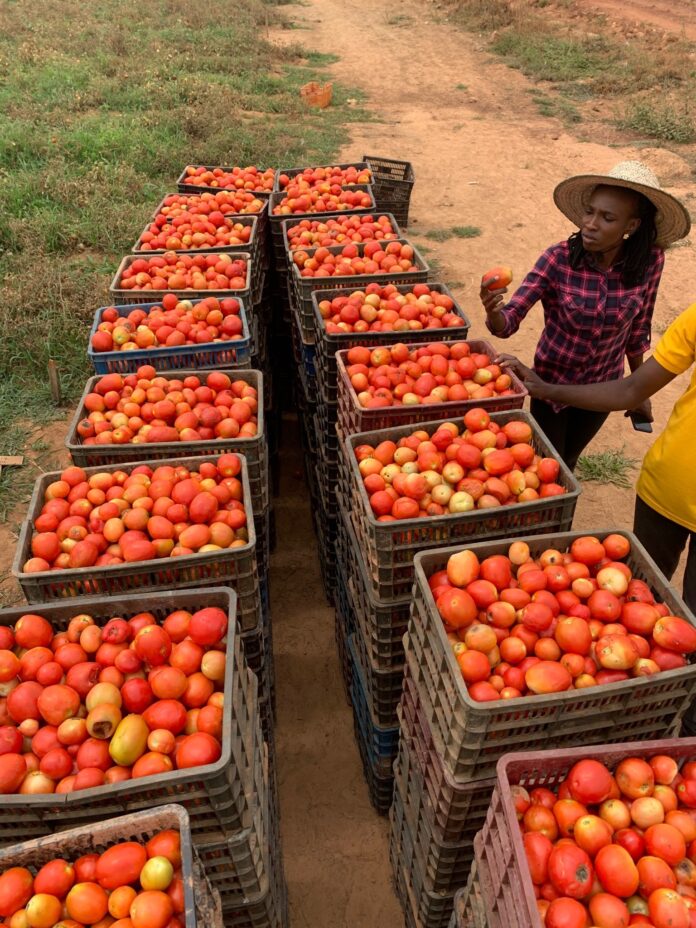As the festive season draws near, Nigerian households are grappling with an alarming rise in food prices. New data reveals that food inflation has surged across the country, with 19 states and the capital city of Abuja experiencing inflation rates surpassing 40% in November 2024.
With Christmas around the corner, many Nigerians are struggling to make ends meet, as food prices have hit unprecedented levels.
The latest Consumer Price Index (CPI) report, released by the National Bureau of Statistics (NBS), paints a grim picture for consumers. Food inflation rose sharply by 39.93% in November, up from 32.84% in the same period last year. This marks an alarming trend that has left many worried about the affordability of essential items during the festive period.
Across the country, staple foods have seen significant price hikes, with the cost of yam, rice, maize, and palm oil spiraling out of control. Other essential items, including guinea corn, millet, and meat, have also seen prices rise sharply, making it even harder for families to afford basic meals.
“The current food inflation is unbearable. Every week, the price of food items goes up. It’s becoming impossible to buy food for my family,” said Amina Usman, a mother of three in Abuja. “I don’t know how we will manage during Christmas, especially with the prices of everything rising so fast.”
On a month-on-month basis, food inflation rose by 2.98% in November, slightly higher than the 2.94% increase in October. This steady rise is attributed to the soaring costs of items such as fish, rice, dairy products, and meat. The twelve-month average food inflation for the period ending November stood at 38.67%, up from 27.09% last year. This represents an 11.58% increase, intensifying the financial strain on millions of Nigerians.
In some states, the situation is even more severe. Sokoto leads the pack with an astonishing food inflation rate of 51.3%, although it has seen a slight decrease from 52.19% in October. Yobe closely follows, with a sharp jump to 49.69%, up from 42.13% in the previous month. Edo State also saw a significant rise, with food inflation climbing to 47.77% from 46.56%.
States like Gombe, Kebbi, and Abia are also grappling with food inflation rates above 45%, further highlighting the breadth of the crisis. Gombe saw a rise to 46.63%, up from 45.35%, while Kebbi’s inflation surged to 46.29%, up from 43.34%. Abia’s food inflation rose from 43.25% to 46.0%, contributing to the mounting cost-of-living crisis.
“We are feeling the pinch of these rising prices every day,” said Ibrahim Adamu, a trader in Sokoto. “The government needs to take action before things get worse. We cannot keep going on like this.”
The situation is not limited to the northern states. Several southern and middle-belt regions are also experiencing severe inflation, including Plateau, Anambra, and Oyo, where food inflation has surged above 40%. In Oyo, food inflation rose to 44.38%, up from 39.29% in October. In Anambra, the rate jumped to 45.94%, while Plateau saw its food inflation hit 43.86%.
Even Nigeria’s capital city, Abuja, is not spared. The city recorded a food inflation rate of 42.84% in November, up from 40.05% in October. This sharp rise comes as a major blow to many residents, who are already struggling with the high cost of living in the city.
“The increase in food prices is making it difficult to feed my children. I’ve had to cut back on essentials just to make ends meet,” said Chinonso Okafor, a resident of Abuja. “This situation is unsustainable, and I fear it will only get worse.”
The skyrocketing food prices are not only affecting families but also businesses. Many small-scale traders are facing difficulties in sourcing affordable products, and transportation costs have further compounded the issue. Insecurity and supply chain disruptions are also contributing to the crisis, as goods cannot move freely across many regions due to the ongoing violence in parts of the country.
“The rising insecurity is a major factor contributing to the increase in food prices. Trucks carrying goods are frequently attacked, and it’s become more expensive to transport items,” said Bello Mohammed, a logistics manager in Kaduna.
In total, 19 states across Nigeria have recorded food inflation rates above 40% in November, making up about 53% of the country’s states. These include Sokoto, Yobe, Edo, Gombe, Kebbi, Abia, Zamfara, Anambra, Kano, Oyo, Plateau, Enugu, Jigawa, Niger, Borno, Kaduna, Taraba, Ebonyi, and Bauchi.
While some states have seen a slight decrease in food inflation, such as Jigawa and Borno, the overall picture remains bleak. Borno, for example, recorded a decrease from 45.84% to 41.83%, but the decrease has done little to alleviate the pain felt by families.
As the Christmas season approaches, millions of Nigerians are hoping that the government will take urgent action to address the issue. With food prices continuing to rise and no immediate relief in sight, many are left wondering how they will celebrate the holiday season.

